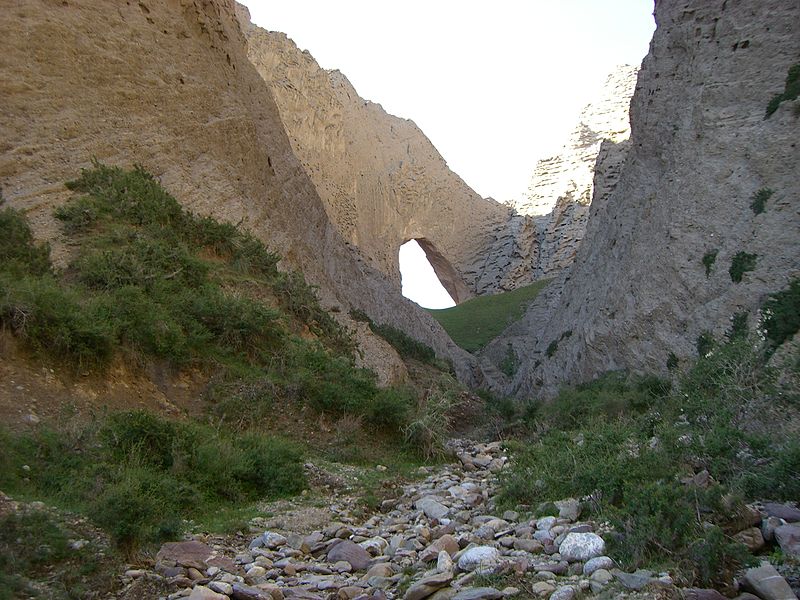
Experience Xinjiang’s Vibrant Cultural Festivals in Kashgar
Kashgar’s cultural festivals offer a rich immersion into Xinjiang’s diverse traditions, blending vibrant performances, historic bazaars, and authentic local cuisine. This guide helps you navigate the city’s lively celebrations with practical tips for making the most of your visit—whether you're a culture enthusiast or a curious adventurer.
Wear Durable, Comfortable Footwear
Cobblestones and packed earth alleys demand supportive shoes with good grip to navigate uneven festival paths without discomfort.
Stay Hydrated in Summer Heat
Temperatures can soar above 30°C in July; carry at least 2 liters of water and plan breaks in shaded areas to avoid heat exhaustion.
Respect Local Customs and Privacy
Always ask for permission before photographing religious performances or older residents, respecting the community’s boundaries.
Book Accommodation Early
Festival periods draw many visitors; secure lodging around Kashgar city center well in advance to avoid scarcity and inflated prices.
Experience Xinjiang’s Vibrant Cultural Festivals in Kashgar
Kashgar, the heart of Xinjiang's cultural crossroads, bursts into life during its colorful festivals—a hands-on experience packed with history, music, and vibrant traditions. Each festival is an adventure of its own, inviting visitors to walk through open-air bazaars that dare you to seek out rare handicrafts and scents of freshly ground spices that push forward through the dry city air.
The 15th Xinjiang International Minority Festival, held annually, is a core highlight. Here, the city pulses with Uyghur dance and throat singing, with dancers’ swirling garments echoing the desert winds. Practicalities matter: festivals often span multiple days, so plan your stay for 3-4 nights to absorb the full cultural breadth without rushing.
During these festivals, the Old City streets become a rugged maze where every turn reveals food stalls grilling lamb kebabs and steaming bowls of laghman noodles, calling adventurers to refuel. The terrain here is urban but uneven; cobblestone alleys and packed earth courtyards demand comfortable walking shoes rather than city flats.
Timing your visit during the Festival of Nawruz (mid-March) places you in the midst of spring customs celebrating renewal and light; colorful hats and flower garlands signal new beginnings. Summer months, around July for the Meshrep Festival, bring traditional horse races and epic storytelling under the clear blue sky, but bring hydration as temperatures push past 30°C (86°F).
Respect for local customs is essential—many festivities are religious or deeply traditional in nature. Observing quiet reverence at prayer performances, and asking before photographing elders, keeps your adventure both ethical and rewarding.
Beyond the festivals, the Kirghiz yurts outside Kashgar offer a rugged step into nomadic life, blending cultural insight with rustic challenge. Expect dusty roads and remote areas where your interaction with nature is immediate and tangible, from the breeze nudging your tent canvas to the sharp bite of morning chill.
Whether you’re tracing the footwork of a seasoned dancer or tasting freshly fermented airag from a shepherd, Kashgar’s cultural festivals are an accessible yet fiercely authentic adventure. Plan well, stay curious, and let the city’s unyielding character guide your journey.
Nearby Trips
All Adventures
Boat Charters
Water Activities
Adventures near Kashgar, Xinjiang
Discover the unique and memorable adventures that make Kashgar, Xinjiang special.
Frequently Asked Questions
What are the major festivals held in Kashgar?
The most notable are the Xinjiang International Minority Festival, Nawruz Festival in March celebrating spring, and the Meshrep Festival in July featuring traditional music, dance, and horse races.
Is it easy to get around Kashgar during festivals?
While the city center becomes crowded, most festival sites are within walking distance. Public transport is limited during events, so prepare for pedestrian travel and some waiting times.
Are non-Muslim visitors welcomed at these festivals?
Yes, Kashgar’s festivals are cultural events open to all, but visitors should observe local etiquette, including modest dress and respectful behavior around religious ceremonies.
What language is spoken at these cultural events?
Uyghur is the predominant language, alongside Mandarin Chinese. Basic English is uncommon, so consider learning key phrases or hiring a local guide.
What local foods should I try during the festivals?
Sample lamb kebabs, hand-pulled noodles (laghman), freshly baked naan bread, and sweet dried fruits—these dishes reveal the region’s culinary depth.
Are there any environmental concerns when visiting during festivals?
Increased foot traffic can strain infrastructure; travelers are encouraged to minimize waste, use designated trash bins, and avoid disrupting local wildlife or sacred spaces.
Recommended Gear
Supportive Walking Shoes
Provides comfort and stability on cobblestones and packed earth paths common in Kashgar’s festival areas.
Sun Hat and Sunscreen
Protects against strong sun exposure during outdoor events, especially in July’s heat.
Reusable Water Bottle
Critical for staying hydrated during long festival days, refillable options help reduce plastic waste.
Light Layered Clothing
Allows you to adjust to fluctuating temperatures from cool mornings to warm afternoons.
Local Insights
Hidden Gems
- "Rooftop terraces overlooking the Id Kah Mosque provide less crowded, panoramic festival views."
- "The Sunday Animal Market offers a raw, authentic slice of local rural life adjacent to the main festival areas."
Wildlife
- "Watch for migratory birds along the outskirts of Kashgar during spring festivals."
- "Desert hares and local songbirds quietly populate the outskirts, darting through sparse greenery."
History
"Kashgar has been a strategic Silk Road hub for over two millennia, with its festivals echoing centuries-old traditions linking Central Asia and China."
